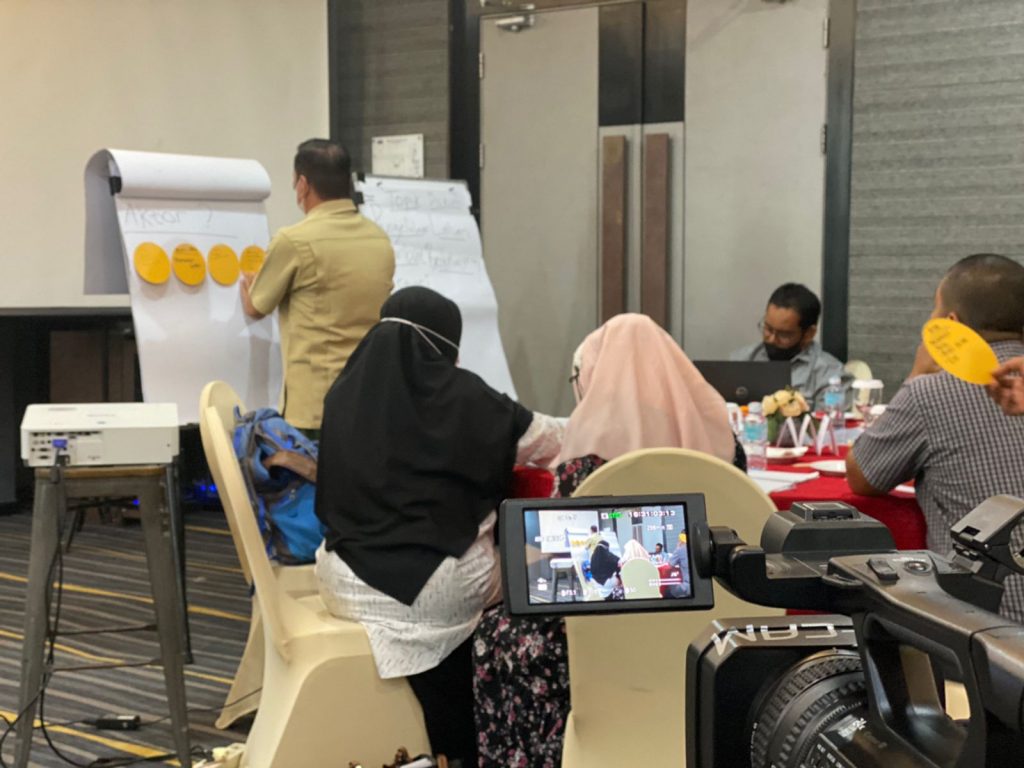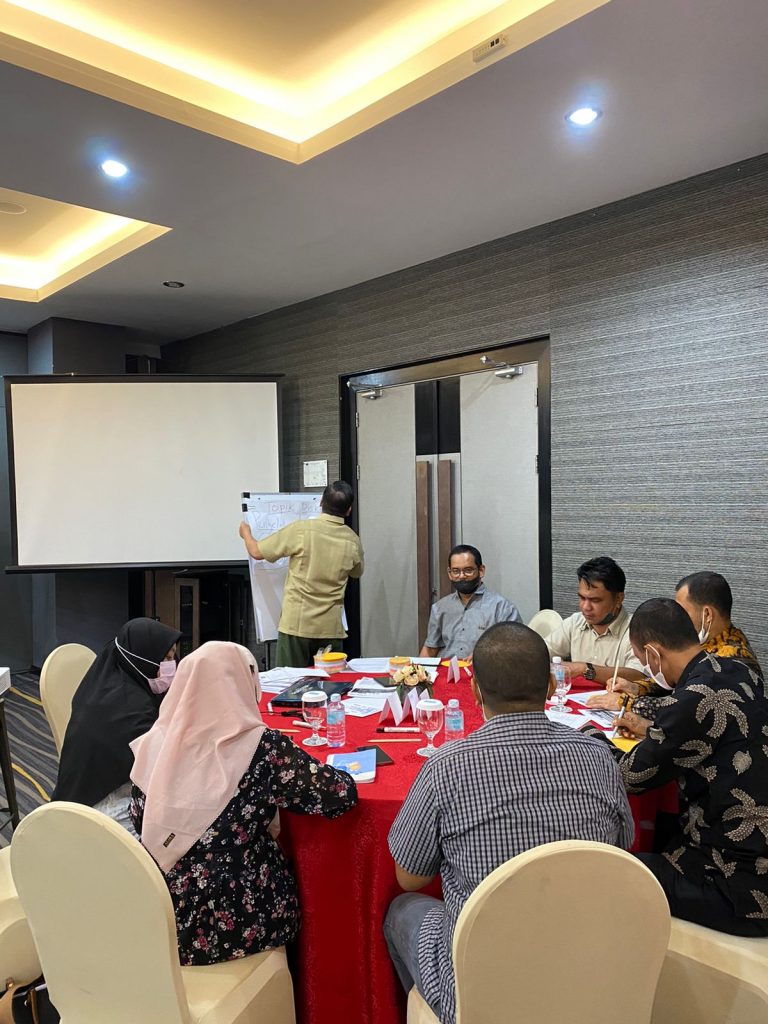January 27, 2022
Location: Banda Aceh

On 26-27 January 2022, Peatland Restoration Directorate of the Ministry of Environment and Forestry (DPKG-KLHK), Environment and Forestry Agency (DLHK) Aceh, and the Deutsche Gesellschaft für Internationale Zusammenarbeit GmbH (GIZ) organised a hybrid meeting in Banda Aceh to present the results of baseline studies to the national, provincial and district partners. The presentations were also followed by Focus Group Discussions guided by peatland experts: Dr. Marinus K Harun, from BPSILHK Banjar Baru; and Dr. Yusya Abubakar, from Syiah Kuala University Aceh.
At the meeting, participants discussed on how to achieve sustainable peatland management while maximising livelihood opportunities for the ten priority peatland communities, taking into account the commodities currently exploited by the peat communities and the existing peatland site conditions. Two important aspects that need attention when planning for pilot site future interventions are fire and flooding events. The event was closed with a brief presentation by Sustainable Use of Peatland and Haze Mitigation in ASEAN (SUPA) Component 1 on the workplan for the next six months, based on the already agreed general workplan.

SUPA Component 1, particularly under Work Area 3, aims to generate pilot experiences from Indonesia and Malaysia. The pilot projects aspire to demonstrate how a peatland, within the landscape or peatland hydrological unit, can be restored and/or rehabilitated through sustainable peatland management options. The best practices drawn from the pilot sites will be able to be adopted by others—not limited to Indonesia and Malaysia but to the entire ASEAN region.
As part of the implementation of Work Area 3, SUPA Component 1 will support technical guidance, monitor project’s progress, and technical recommendation on the activities. Last year, SUPA Component 1 carried out a series of baseline studies on the pilot site area in order to best plan for the interventions at the PHU site. The baseline studies included: land cover, land use change and burn scar mapping, socio-economic vulnerability assessment and an assessment of fire situation in the pilot site.

On the way forward, SUPA Component 1 will hold a Pilot Site Steering Committee Meeting to discuss the workshop results and approval for the pilot site workplan. SUPA Component 1 will also organise workshops with the villages and do a comparative study to another place with experience on sustainable peatland management.
Share this
